“At this moment, (Chapel Hill Transit) operations are not financially sustainable in the long term so we’ve got to do something,” said Bethany Whitaker, principal at the transportation firm Nelson\Nygaard.
The town hired the firm to study the state’s second largest transit system and to help make a financial plan for the system’s future.
Chapel Hill Transit has about a hundred fixed-route vehicles. The system should replace 40 percent of its buses and hire more drivers and mechanics, Whitaker said in her presentation to the Chapel Hill Town Council on Monday. This takes money.
“About $80 million over the next ten years needs to be invested in the system both for replacing vehicles, (and) also bringing staff and operations up to speed,” said Whitaker. “But this does not account for any growth in the system.”
Funding for the transit system comes from UNC and the towns of Chapel Hill and Carrboro. Chapel Hill Transit also gets federal funds – which have remained steady over the last ten years, but inflation makes the 2015 dollars worth less – and state funds, which have decreased during this period.
Whitaker listed five strategies to make the bus system financially sustainable.
1) Pass a tax to raise more money for area transit
2) Reduce service
3) Charge bus fares
4) Leasing, debt financing to purchase vehicles
5) Require partners (Chapel Hill, Carrboro and UNC) to increase transit funding
Council members offered differing viewpoints on whether busing is too heavily oriented toward the UNC campus and whether the fare-free system should be re-evaluated. Members asked Nelson\Nygaard to analyze each option in greater detail to help the council make a financial plan for the transit system. You can read the firm’s full report here.
Related Stories
‹
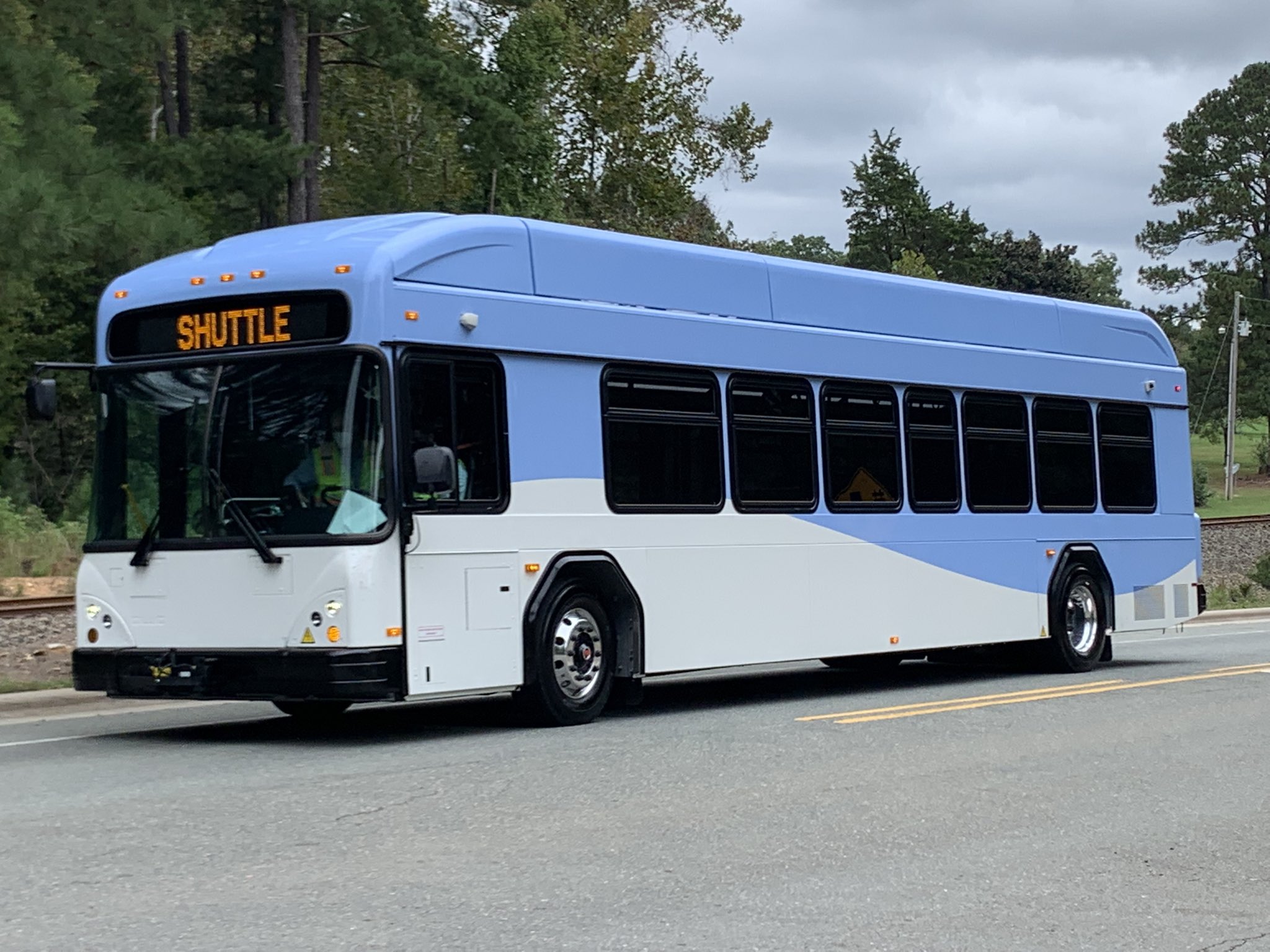
Three New Electric Buses Join Chapel Hill Transit Fleet, 8 More to ComeThree electric buses are joining the Chapel Hill Transit fleet. These buses are currently in the pilot trial phase and are part of the Town of Chapel Hill's larger sustainability initiative.
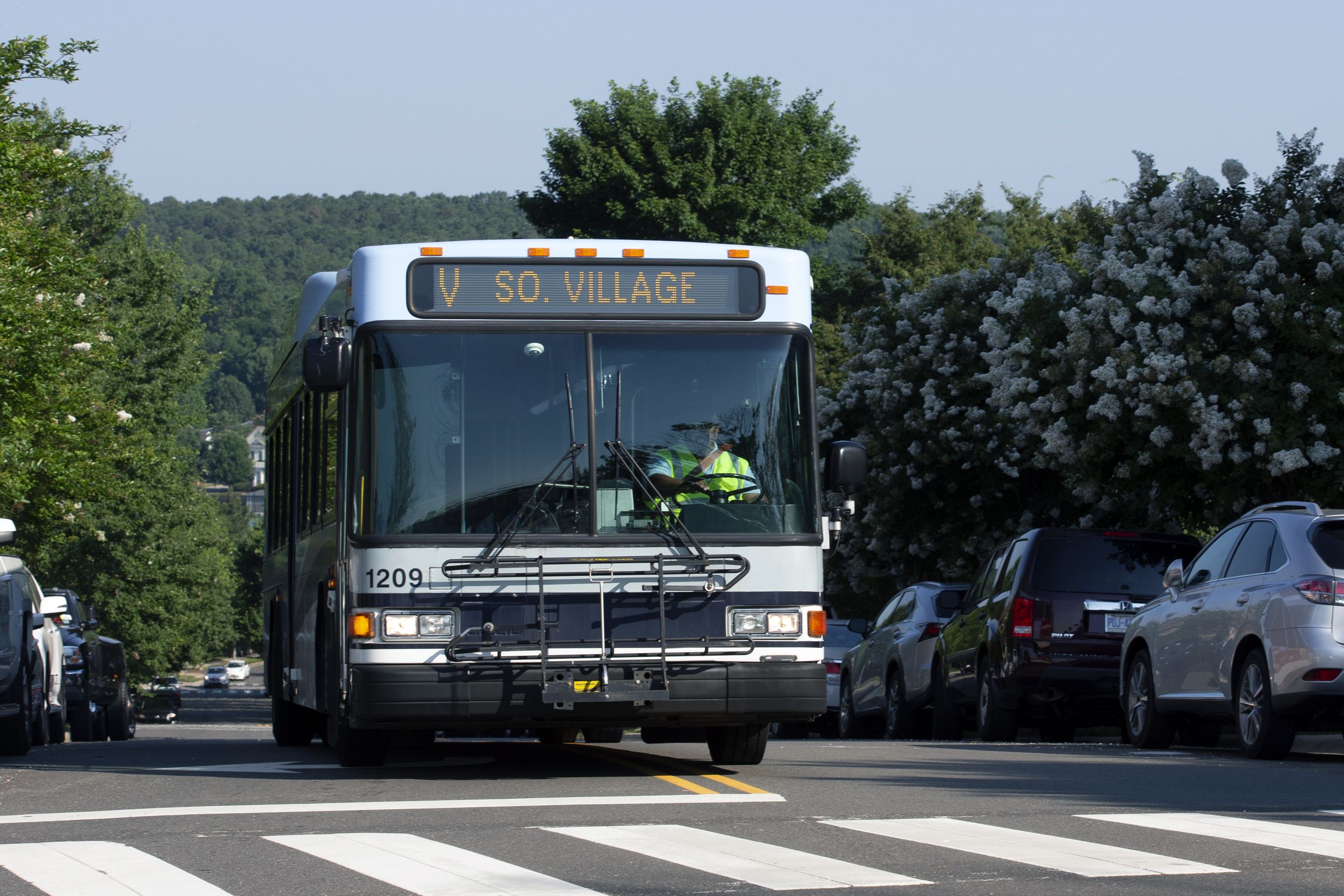
Chapel Hill Transit Experiencing Critical Worker Shortage, More Than 50 Operators NeededChapel Hill Transit returned to full service operations in August, but some riders are seeing changes on their routes. The transit system is experiencing a critical operator shortage. Typically entering a new school year there are 130 to 140 operators. This year, however, there are only 86.
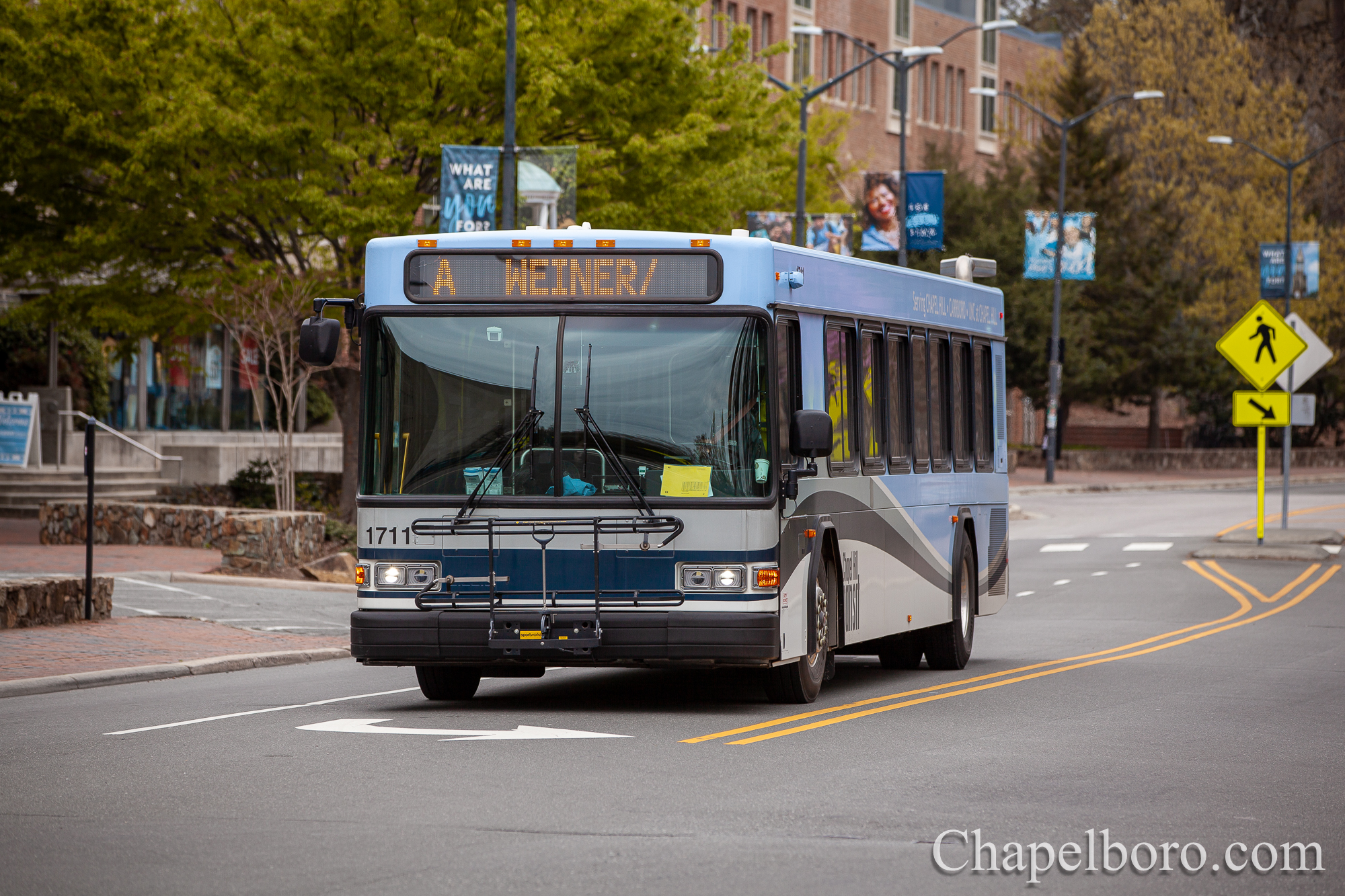
Chapel Hill Transit To Resume Full Service, Eight Routes To See ChangesAfter more than a year of altered service, Chapel Hill Transit is set to return to full operation next week, however eight routes will see some changes to operations.
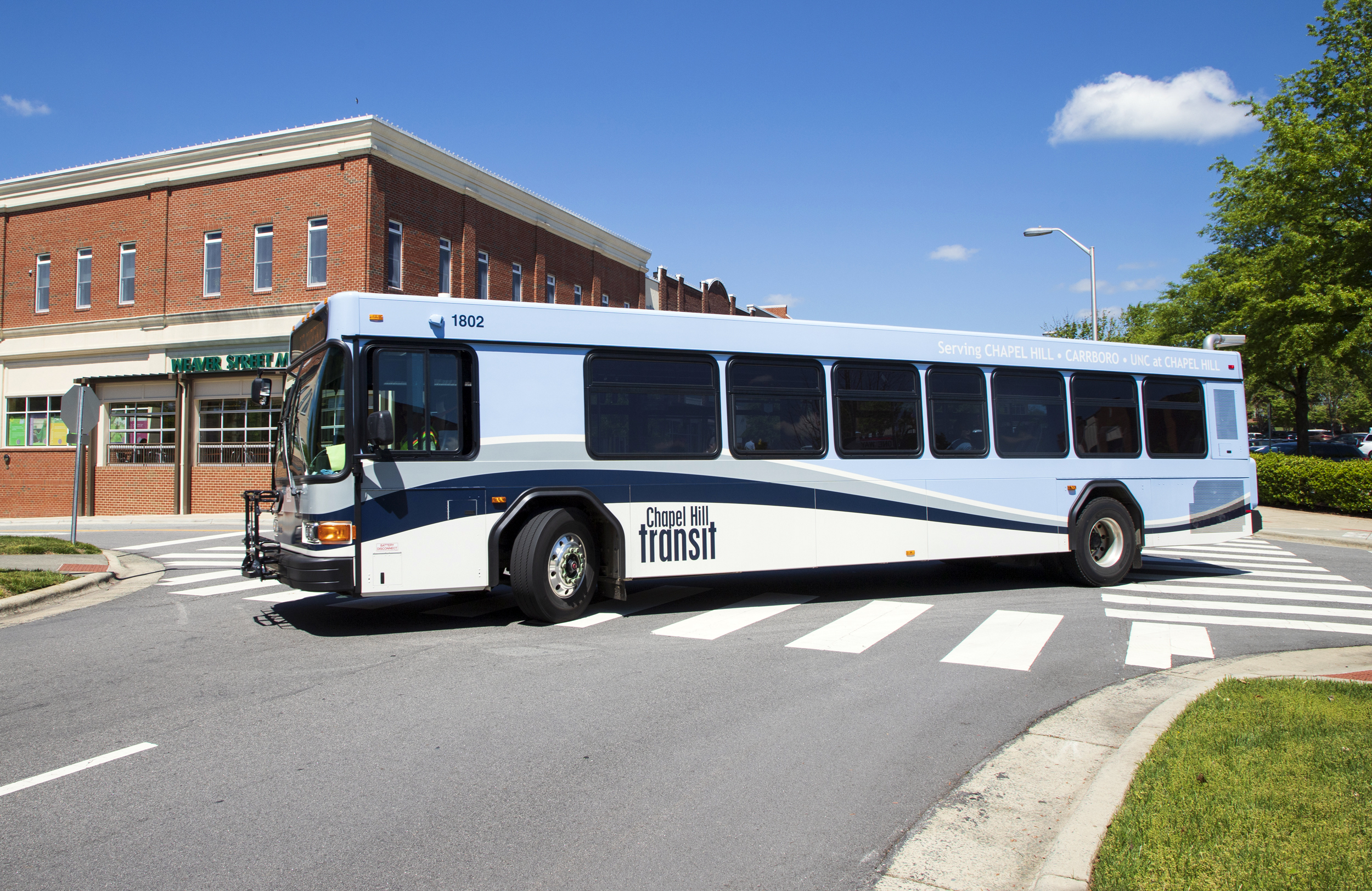
Chapel Hill Transit To Add Two Routes To Reduced COVID-19 ServicesChapel Hill Transit will add two routes to its reduced services beginning on Monday, October 5. The addition of the CL and N routes was approved on Sept. 22 by the Public Transit Partners committee. the committee is comprised of members of the Chapel Hill Town Council, Carrboro Town Council and UNC Parking and Transportation office. Brian Litchfield, Transit […]

Art Installations Coming to Chapel Hill Transit Bus SheltersThis fall, Chapel Hill’s public transportation is getting quite a bit more colorful. Five bus shelters in Chapel Hill and Carrboro will soon be adorned with spraypainted stencil designs by Ingrid Erickson, screen print posters by Ron Liberti, neon tapework by Mary Carter Taub and other installations and con by local artists. The bus stops slated for artistic […]
![]()
Summer Detour Set for South Road in Chapel HillPlanners at UNC-Chapel Hill are taking advantage of the post-graduation lull by executing a utility improvement plan that will affect South Road for months. A portion of that road between Raleigh Street and Stadium Drive will remain closed to traffic from May 15 to August 04 while construction in the vicinity takes place. According to […]
![]()
Transit Director Appointed in Orange CountyThe Orange County Board of Commissioners has selected Theo Letman to lead a new department of the municipal government that will focus on public transportation. Letman’s appointment to the Orange County Public Transportation Department was announced on Thursday in a press release from the Orange County Community Relations Department. As transit director, Letman will foster […]
![]()
Brian Litchfield Announced As CHT DirectorTown Manager Roger Stancil announced Friday that he has appointed Litchfield as Chapel Hill Transit’s director.
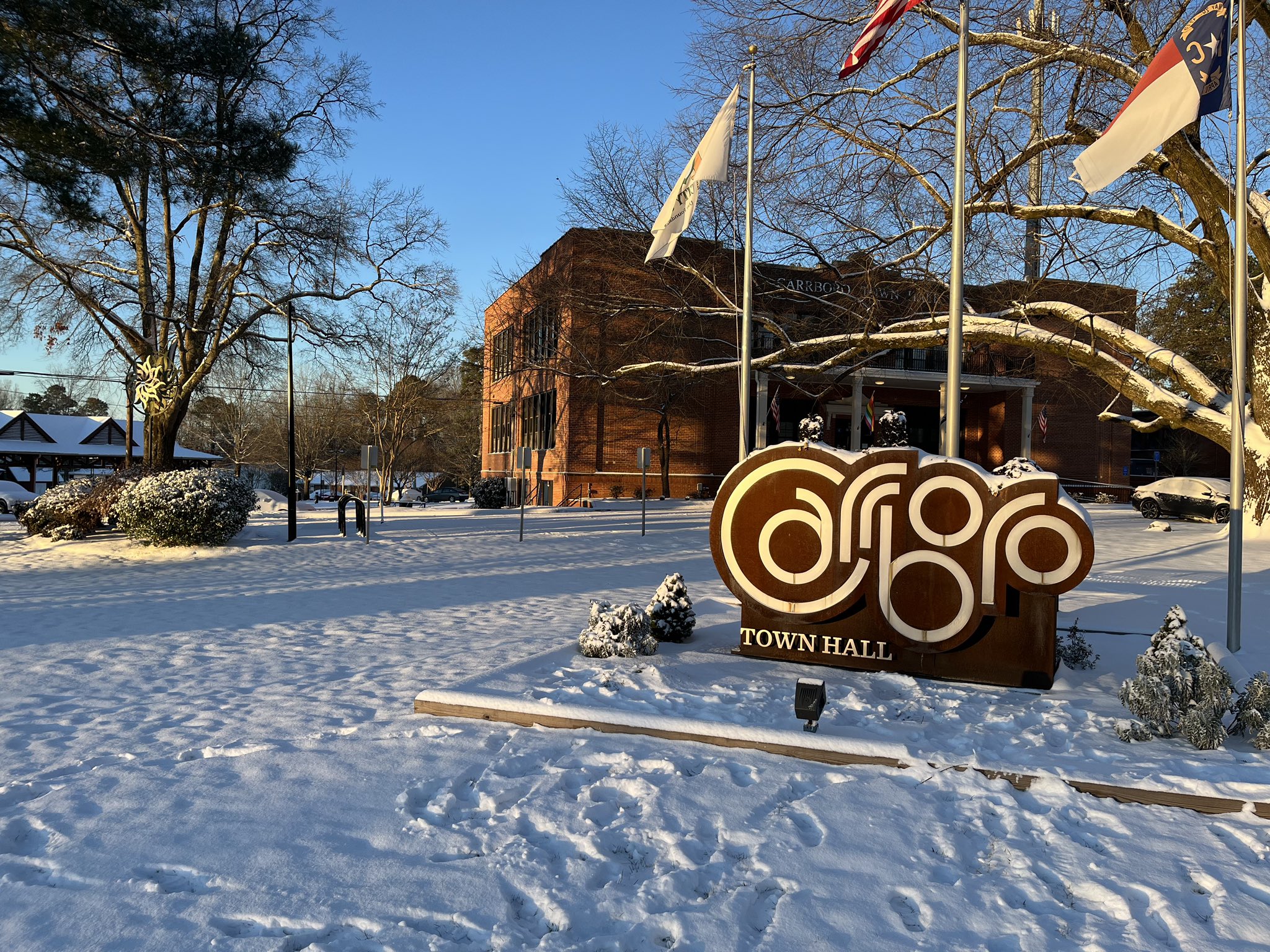
Winter Weather Forecast Leads to Local Government Facility Closures, Service ChangesFrigid temperatures mixed with precipitation from Winter Storm Fern has led to much of North Carolina sheltering and staying in this weekend. To help encourage that — and to allow some of its staff either stay home or address adverse conditions — many of the local governments in Orange and Chatham counties are altering their […]

Thanksgiving Holiday to Affect Local Government Services in Orange County (2025)Thanksgiving will fall on Thursday, November 27 this year, and the holiday will affect several local government services around the Orange County community. Here’s a rundown of what residents can expect: Town of Chapel Hill Thursday, November 27 and Friday, November 28 are both town holidays. Residential trash collection will not be affected. However, there […]
›







